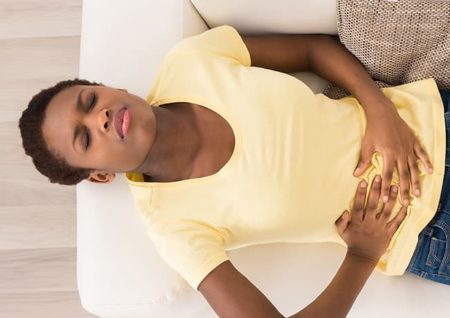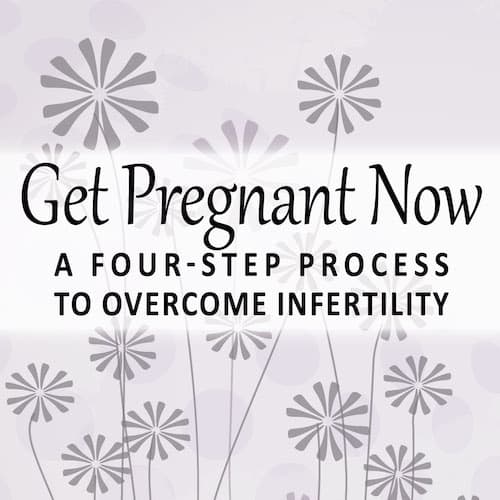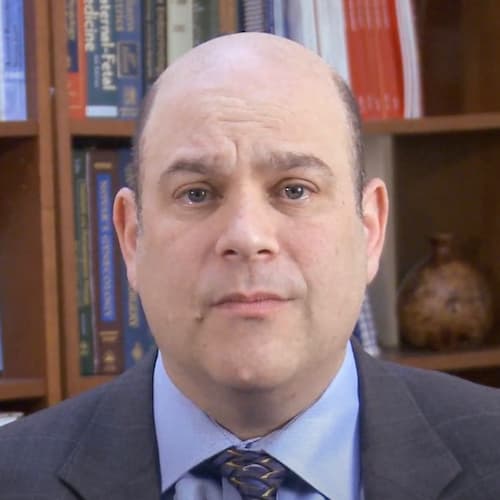Endometriosis & Fertility
 This is a big topic. What is endometriosis? How does it affect your fertility? How do you figure it all out so you can make an action plan?
This is a big topic. What is endometriosis? How does it affect your fertility? How do you figure it all out so you can make an action plan?
Don’t let the pain force you to sacrifice your fertility. If you suffer from endometriosis or know somebody in pain please send along the link or check it yourself. You could change your life!
I want to give you an overview introduction to endometriosis, how it relates to infertility, and how to evaluate your fertility and plan in light of this disease in your life.
If you do suffer from endometriosis, you will need additional information and support beyond the scope of this summary. So please check out the resources I have listed at the end so that you can find the help you need.
What is endometriosis?
Let’s start with some basics about what endo is and what causes it. A woman of reproductive age who ovulates creates endometrial tissue in her uterus during the monthly cycle. With endo, the endometrial tissue grows in places other than in the uterus, and causes bleeding, pain, and scarring. You will find endometriosis anywhere – I have seen it in the colon, in the abdominal cavity, even in the kidneys and lungs. Most commonly though, endometriosis grows behind the uterus (in what we surgeons call the cul-de-sac), the septum dividing the vagina and the rectum, in the fallopian tubes and ovaries, on the bladder, and in the pelvic walls. As far as we can tell, about 5 million women in the US suffer from endometriosis, and about 40% of this group is infertile. However, many people who suffer from this debilitating disease attribute the pain to their period and don’t get help, so I believe the incidence is much higher.
Until we find a definite cause, we cannot create a full cure for this disease. We are not sure what causes endometriosis, though there is some indication this is a disease that is partly genetic, since endometriosis tends to run in families. It may be that the endometrial tissue, after getting created during the menstrual cycle, migrates to other parts of the body and keeps bleeding in response to normal monthly hormonal fluctuations. It may also be an immune disorder of some kind, like lupus or MS.
How can you tell if you are suffering from endometriosis? Here are some common symptoms:
- The most common symptom is pain, almost always pelvic pain though severe pain can be referred to your shoulder blades or your lower back. The pain often coincides with your period though not always. The pain is extreme, sometimes debilitating, and sufferers often report the pain gets worse as time goes on.
- Painful periods as part of the above – often this is the first symptom that something is wrong, pain that goes way beyond ordinary levels of discomfort during your period.
- During your period, you might also experience pain with bowel movements or urination. This pain may indicate that the endometrial tissue is in your colon or urethra.
- Heavy periods or bleeding between your periods
- Pain with intercourse. You might have pain during or after sex
- Other symptoms that might be hard to pinpoint, like bloating, nausea, cramping, fatigue, diarrhea or constipation. These might get worse during your period, or occur independent of your cycle. One of the reasons that endometriosis is hard to diagnose is because these symptoms can indicate any number of problems, or can be easy to dismiss as just due to “a rough period”
- Infertility. As I mentioned above, about 40% of people who suffer from endo have infertility. And you might be coming to a doctor because of infertility and discover the endometriosis as part of your detective work As I mentioned, because of the diffuse nature of some of these symptoms, it’s common to get some confusion with other conditions, and receive an incorrect diagnosis at first. I have seen endo misdiagnosed as cysts or as irritable bowel syndrome. These factors may also be present, but changing diet or taking hormones do not appear to ease the pain of endometriosis.
How does Endo affect your fertility?
Not all women with endo have infertility, but it can affect your fertility in about 40% of all cases of endo. We can talk for a long time about endometriosis in cases where it does NOT affect your fertility, but I want to focus on fertility here and get you on the road to pregnancy as fast as possible.
So how does endometriosis impact your fertility? Here’s another checklist:
- Adhesions (scarring) in the tubes and/or ovaries. A scarred ovary might not be able to release an egg normally, and an egg may not be able to move through a scarred fallopian tube to reach the uterus.
- Scarring inside the uterus can lead to multiple miscarriages in cases where the egg is able to implant at first. But uterine scarring can prevent a fertilized egg from implanting in the first place.
- If you are having pain with intercourse, especially if it coincides with your cycle, you may not be able to have sex on the days when you are the most fertile. Even if scarring hasn’t damaged your reproductive organs, if the sperm and egg can’t meet, you will not be able to conceive.
- Because there might be a hormone-related aspect to endometriosis (we’re not sure about this and further research is needed) we have a theory that because of too many prostaglandins the fertilized egg may not be able to properly implant in the uterus
Similarly because of the immunity aspects of endometriosis, because of the inflammation the adhesions cause, or maybe because endometriosis is in fact a disease of the immune system, the body might attack the fertilized embryo as part of an overactive immune response. Strengthening your immune system might lead to better outcomes if you suffer from endometriosis.
Now, given all of these impacts on fertility, I have a number of different treatment options I can take to remove these barriers. But first, always, you need a good diagnosis so that we have a sense of what is causing your infertility so that we can systematically address all the barriers.
So in a case where I have identified scarring and other evidence of endometriosis, here are the tests I would get to see how your fertility is affected:
- Confirm ovulation
- Hysterosalpingography (HSG)
- Diagnostic laparoscopy
- Hysteroscopy
- Falloposcopy
I’ve already written about these diagnostic tests here in the “diagnosis and testing” section. I would also do a full work up so that I can uncover any other causes of infertility that may be lurking, including male factor infertility. You might have to treat other problems besides your endo in order to become pregnant and avoid miscarriage.
Say we conduct these tests, and we figure out that your endometriosis is the major problem standing between you and a healthy pregnancy. What treatments specifically for endometriosis do I have in my playbook?
Here’s a list of all the treatments I can use to battle endometriosis:
- Surgery – This is an obvious one. If you have a physical blockage in your tubes or uterus, I can go in, remove the scarring and blockages, and make sure your uterus is healthy. This is where you need to be vigilant – just as with fibroids, some general OB/GYNs and surgeons are focused on easing your pain, not preserving your fertility.
Do not assume that only a hysterectomy will stop the pain. I have developed some revolutionary new surgeries, including robot surgery, high definition surgery, and blue light surgery, all designed to help surgeons visualize endometriosis with more power than our naked eye. The surgical tools we use can extend our effectiveness beyond the abilities of the human body. It’s a great time to be a microsurgeon! - In-vitro fertilization – IVF avoids the need for having working fallopian tubes so if you have had your tubes removed but still have functioning ovaries and uterus IVF is a terrific option. If you are otherwise fertile, once you get around the physical blockages you will have a high likelihood of success. IVF in concert with surgery to repair the uterus if you have uterine scarring can also lead to great success.
- Alternative therapies – I see these as not alternative but complementary to conventional medical approaches. I have seen pain reduced by acupuncture, meditation, and massage. Proper diet, reduction of stress, and vitamin therapies can also help. I would caution you to go ahead with herbal treatments only with your doctor’s knowledge – these are powerful, unregulated drugs and may impact the medical treatments you receive.
Endometriosis doesn’t have to mean you can’t have children. With a combination of surgical and medical techniques, I have seen women not just become pregnant and carry their babies to term, but also beat the pain and come out of treatment 100% healthy and ready to live a full life as mothers and pain-free.
If you are suffering from the pain of endometriosis, please find support as well as medical help. Here are some resources created by women like yourself who have battled endometriosis and won:
I have been privileged to help many women beat this debilitating disease.
You can beat it too!
Here is the game plan…
- Step 1: Do you have any of the symptoms of endometriosis?
- Step 2: Make sure you share those symptoms in your patient consult, patient history, and make sure your doctor does a work up for endometriosis as well as the other possible causes of infertility
- Step 3: If you do have endometriosis and it is contributing to your infertility, make a plan of action. Do diagnostic tests to pinpoint exactly how endo is acting as a barrier to your pregnancy. Then explore the options for addressing these barriers. Do you need surgery? Will IVF alone get around this barrier?
- Step 4: Treat the pain as well as the fertility. My goal as a doctor is to get you pain free as well as to parenthood. You don’t need to accept the pain of endometriosis as part of the rest of your life. Get help from doctors and from other people who have found successful treatment.
- Step 5: If you need more information at any point, contact the patient groups I have listed here, or call me at our 24/7 recorded help line. [number] You can listen to the pre-recorded message, and leave a message if you would like to speak with a doctor or nurse live.



